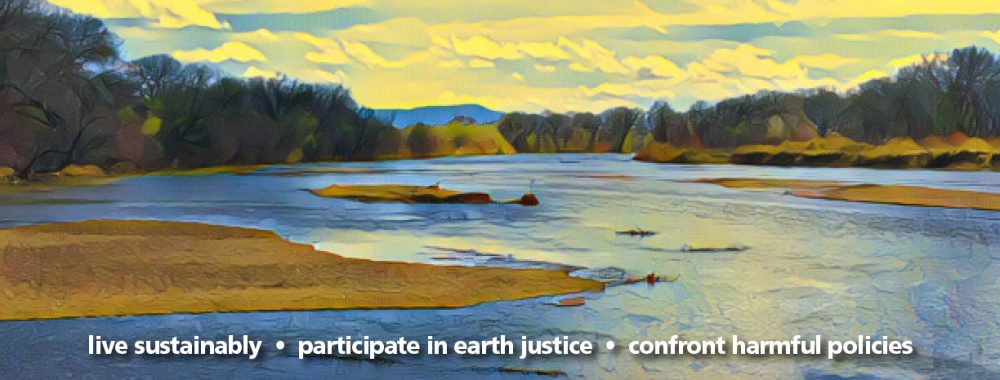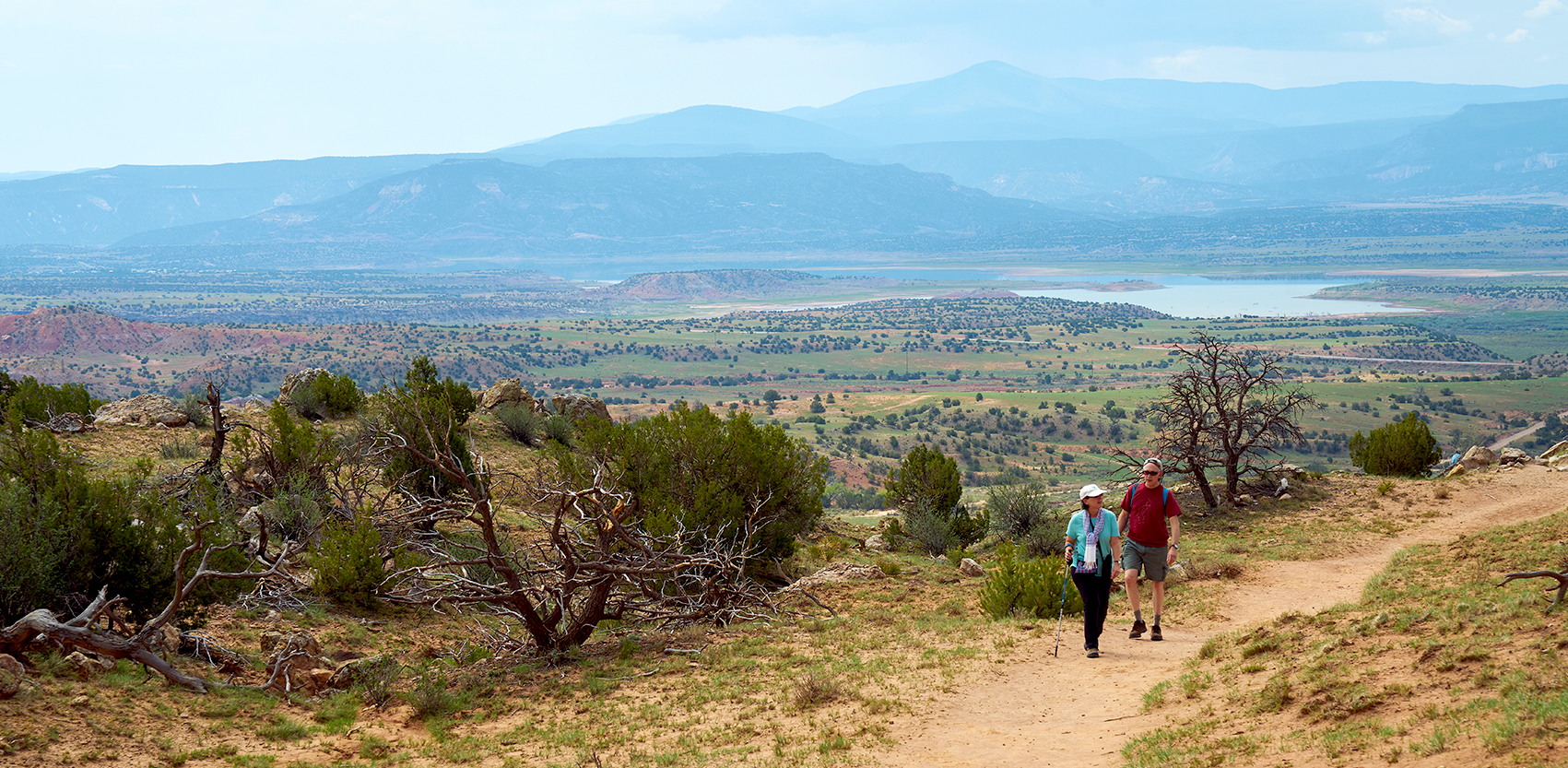by George Muedeking

As we watch the slow death of ancient ecosystems such as the Rio Grande Bosque, the dwindling flow of water. and the dying off of cottonwoods, we find ourselves in a Cassandra-like dilemma of knowing the future but seemingly unable to avoid the deadly consequences of the present. Doom: “A common feeling of ugh or dread upon realizing that technological progress and economic growth and development are the root of our predicament, not our way out.”[1] We desperately need significant social and cultural change at a time when the world’s leaders are hesitant and willingly avoid the needed commitments. What are we to do? Where do we go for hope?
“Stupidity” is a word so encrusted with pejorative meanings that we lose sight of its intended usage: To act irrationally in the face of obvious consequences (such as kissing a rattlesnake on the lips). Or, in this case, stupidity is a denial of reality to the degree that one’s own survival, to say nothing of the survival of others, is imperiled. In a way, denying reality is a type of grief avoidance, but in the current circumstances those who dismiss or minimize global warming and its dire consequences have been co-opted by political forces that have the most egregious of motives, i.e., greed and power at any cost.
We must accept the fulness of our reality, knowing the extent of the tragedy, but in the knowing also finding a way to transcend toward a deeper, more compassionate spiritual aliveness. “When you realize that the whole world is a living system that can only thrive when death makes room for new life, it allows you to reconnect with the alive world in a more compassionate way.”[2]
Joanna Macy wrote, “There is science now to construct the story of the journey we have made on this Earth, the story that connects us with all beings. Right now we need to remember that story — to harvest it and taste it. For we are in a hard time. And it is knowledge of the bigger story that is going to carry us through.”[3]
For many years I jogged and hiked in the East Mountains near Albuquerque and have now moved to the foothills of Albuquerque where I continue to carry on my daily routine. Going out at the same time nearly every day allows one to see the subtle seasonal changes, the moon’s phases, and animal habits. I am so grateful for the visionaries who created the National Forest preserves and the Open Space parks around Albuquerque.
Now in the winter, it is dark when I leave the house. My headlamp catches the disembodied eyes of grazing groups of deer, sometimes a coyote, jackrabbit, or other mammal. I have come to know and respect the cycles, short and long, in what I observe. Lately the long cycle of the evergreen trees, the much longer cycle of creek beds, and the forever cycle of the mountains have captured my attention. A huge boulder rolled into an open field at some point. How did it stray so far from the mountain? Then I realize the foothills were much taller at a previous time. The boulders rolling with a speed that would send them far. The hills look worn and crumbling. The rock at their core transforms into first the boulders, then the rocks, then the stones, then the sand, where it becomes soil as the elevation lowers until vegetation takes over, becoming thicker as it moves toward the River, until the vast Cottonwood Forest which looks impenetrable from this distance.
I mourn the disappearance of the short-term life cycles of the animals and trees, but the grief I feel is magnified lately by foreseeing my own termination on this earth. The culture that sustained me has already disappeared to a great extent. Cultural change seems to have accelerated, pulled toward some far-off magnet where its energy will finally dissipate into the life cycle of another, unknown realm. The inevitability of my own demise allows for a melting of my consciousness into that of the cycles I observe. I feel stronger knowing that I am part of a process that involves me in it, too. I am closer to being one with what I see.
What cycles help you explore your place in the world? Does the epic of evolution or the story of our universe expand your sense of identity or help you trust time and nature, evolution and ecology? Does understanding the rise and fall of previous civilizations assist you in accepting our fate? To see how 77 different environmentalists and futurists have responded to the issues of climate doom, I suggest going to the website www.postDoom.com and joining the discussion.
[1] PostDoom website
[2] Victoria Loorz, Church of the Wild: How Nature Invites Us Into the Sacred (Broadleaf Books, 2021).
[3] Quoted on PostDoom Website


What a lovely essay–“Faith Sits on the Edge of Despair.” Thank you, Larry. Yes, to answer one of your thoughtful questions–the story of the eternal expansion of our Universe does calm my sense of panic at our collective “stupidity.” So does the idea that my death and the death of the Earth as we know it is only a tiny blip in outside-of-time foreverness. If love is the essential nature of the Universe, of All That Is, then my greatest responsibility as a human being is to reside in Unconditional Loving, with capital letters, and create Love. Which means I must tackle that most-difficult issue for me–I must also love my enemies. The supreme challenge of the moment, no?